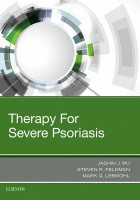Physical Address
304 North Cardinal St.
Dorchester Center, MA 02124

Key points Investigational therapies aim to inhibit the specific immunologic mechanisms behind plaque psoriasis without widely affecting the normal immune system. Pathways targeted by investigational therapies include Janus kinase, tumor necrosis factor-α, interleukin-17, and interleukin-23. Phase II and phase III…

Key points Combination therapies of biologics and systemic agents for psoriasis treatment can potentially enhance efficacy of treatment, increase onset of remission, and decrease side effects by allowing for dose reductions. Potential therapeutic combinations examined include methotrexate paired with biologics;…

Key points Through the Biologics Price Competition and Innovation act, the US Food and Drug Administration (FDA) has defined a biosimilar as a biologic product that is highly similar to the original product notwithstanding minor differences in clinically inactive components.…

Key points Ixekizumab is a humanized monoclonal antibody against interleukin-17A. Ixekizumab is more efficacious in the treatment of plaque psoriasis in comparison to etanercept and placebo. Ixekizumab has led to higher clinical response rates and skin clearance rates in clinical…

Key points Secukinumab is a first-in-class human monoclonal antibody against interleukin-17A. Secukinumab has been demonstrated in clinical studies to be significantly more efficacious in the treatment of plaque psoriasis in comparison to etanercept and ustekinumab. The most common side effects…

Key points Ustekinumab is a human immunoglobulin G κ monoclonal antibody that binds to the p40 protein subunit shared by interleukin-12 (IL-12) and IL-23 cytokines. Ustekinumab is safe and efficacious for the treatment of moderate-to-severe plaque psoriasis and psoriatic arthritis.…

Key points Adalimumab is a safe and effective therapy for the treatment of moderate-to-severe psoriasis. The mechanism of action of adalimumab is inhibition of tumor necrosis factor-α (TNF-α), thereby inhibiting the inflammatory cascade leading to psoriatic skin lesions. Pivotal trials…

Key points Infliximab is a safe and effective therapy for the treatment of moderate-to-severe psoriasis. The mechanism of action of infliximab is inhibition of tumor necrosis factor-α, thereby inhibiting the inflammatory cascade leading to psoriatic skin lesions. Pivotal trials on…

Key points Etanercept is a soluble human dimeric fusion protein that competitively binds and inhibits tumor necrosis factor. Etanercept improved psoriatic skin lesions in phase 2 and phase 3 clinical trials. Etanercept can be used in pediatric and geriatric populations…

Key points Apremilast is the first small molecule phosphodiesterase 4 (PDE4) inhibitor approved for treatment of moderate-to-severe plaque psoriasis. Apremilast, in contrast to biologics, is not injectable, and its label does not require monitoring or screening for tuberculosis. Apremilast is…